The Independent's journalism is supported by our readers. When you purchase through links on our site, we may earn commission. Why trust us?
Experts say this affordable superfood can help improve skin and heart health
We asked experts for their recommendations on the flaxseeds to add to your diet
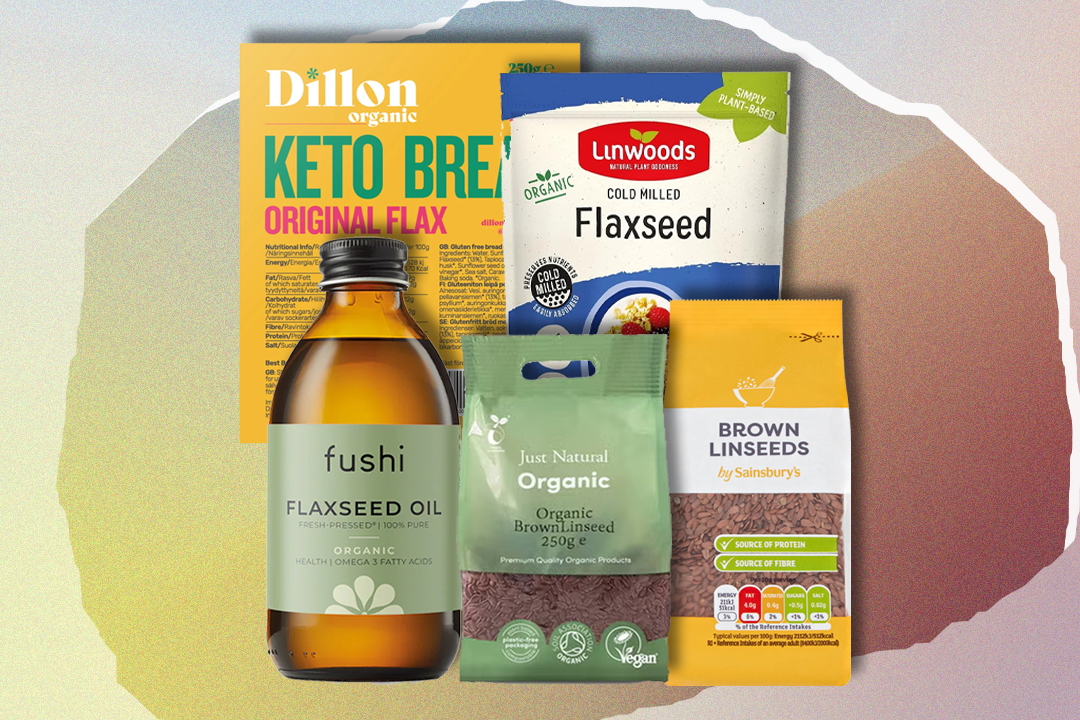
Your support helps us to tell the story
This election is still a dead heat, according to most polls. In a fight with such wafer-thin margins, we need reporters on the ground talking to the people Trump and Harris are courting. Your support allows us to keep sending journalists to the story.
The Independent is trusted by 27 million Americans from across the entire political spectrum every month. Unlike many other quality news outlets, we choose not to lock you out of our reporting and analysis with paywalls. But quality journalism must still be paid for.
Help us keep bring these critical stories to light. Your support makes all the difference.
From Bella Hadid and Kim Kardashian raving about sea moss to cold ice baths loved by the likes of David Beckham and Harry Styles, the wellness industry is booming. But while supplements and ice baths can be expensive, there’s one budget food that can equally transform your health: flaxseeds.
The simple food has more than a 100 million views on TikTok and approval from health gurus like Dr Michael Mosley. Speaking on his popular BBC podcast last month, Just One Thing, the TV doctor highlighted the benefits of introducing flaxseeds into your diet, which include reducing blood pressure and improving skin.
Described as a “nutritional powerhouse packed with fibre, protein and healthy fatty acids”, this plant-based food has a mild taste, so it’ll easily slot into your existing diet (you can sprinkle them on salads, add to your bakes or even your breakfast cereal).
“Studies show that eating flaxseeds can lower blood pressure and also improve your skin, which could be down to the fatty acids and anti-oxidants which are much more readily available when you grind them up,” Dr Mosley explained. “A small German study on women with sensitive skin showed that two weeks of taking a 2g flaxseed oil supplement improved their skin quality. Not only did their sensitivity decrease, but they also received a boost in both hydration and smoothness.”
He said that just one teaspoon of flaxseed daily can make a big difference, adding that they are “also rich in fibre, which is not only good for relieving constipation but can also help control our blood sugar levels”.
If you’re tempted to add flaxseed to your diet, but don’t know where to start, we’ve gone to expertsfor more information on the food’s benefits and recommendations on what products to buy, from seeds to oils and bread.
Read more: The best supplements to take, according to experts
Best flaxseed products
Linwoods milled flaxseed, 1kg: £12.94, Amazon.co.uk
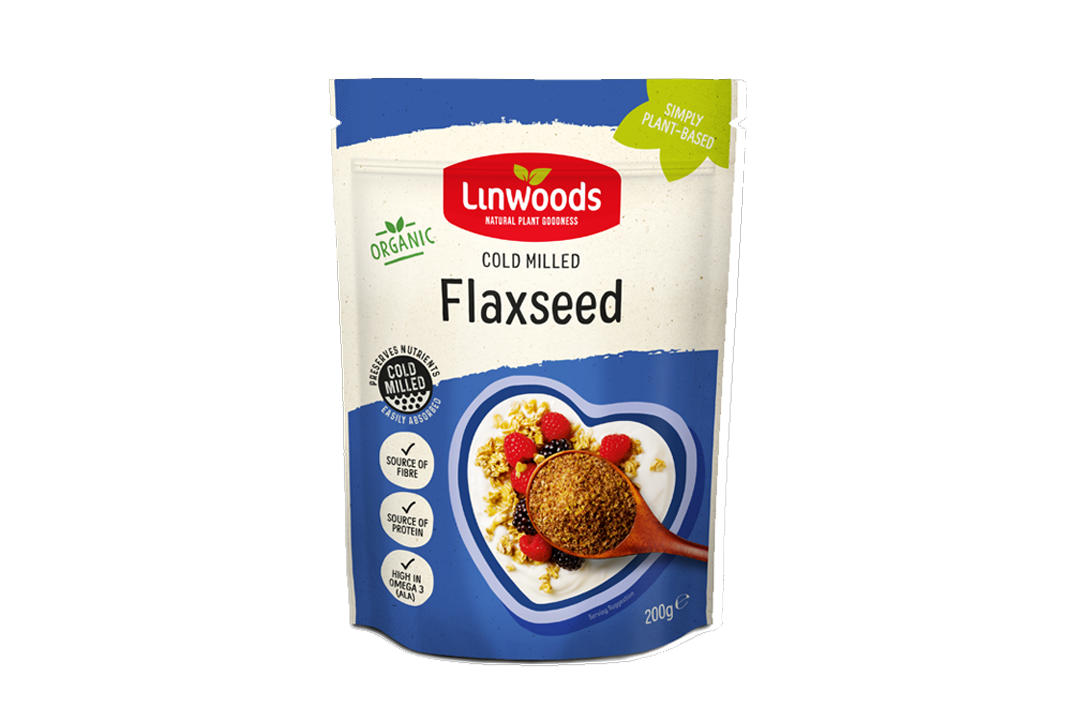
Eleanor Hoath, nutritional therapist and editor of Healf, suggests turning to pre-ground flax and recommends Linwoods’ milled 1kg pack, which should be put straight in the freezer once opened. High in omega 3, magnesium for bones and teeth and fibre, it’s a source of plant-based protein. Linwoods’ flaxseed is also cold0milled to preserve nutrients and aid with easy absorption. The groundflax can be used in smoothies, baked into bread or sprinkled over yoghurts and cereals.
Holland & Barrett brown flaxseed, 500g: £2.64, Hollandandberrett.com
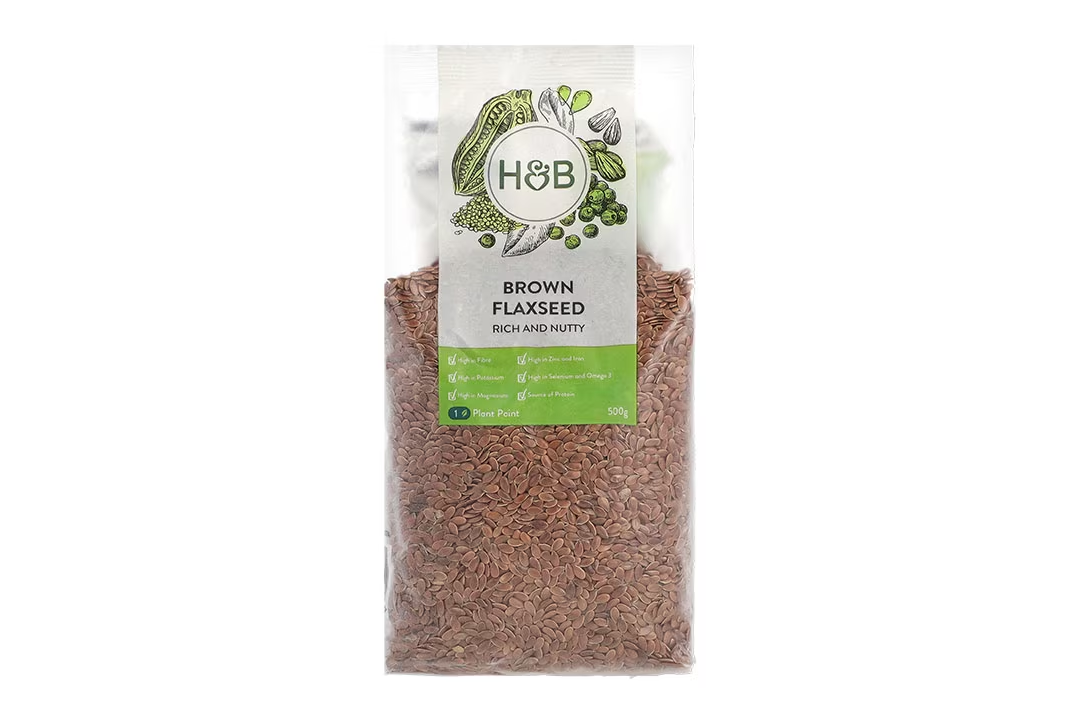
Emily English, a BSC-qualified nutritionist and founder of gut supplement Epetóme recommends opting for brown flaxseeds over golden, as brown contains more antioxidants. She suggests Holland & Barrett’s brown flaxseeds, which are fibre-rich with nutty notes. A crunchy and nutritious addition to breakfast foods, sprinkle onto breakfast cereals or blend into a smoothie to kick start your day.
Just natural organic brown linseed: From £1.89, Justnatural.co.uk
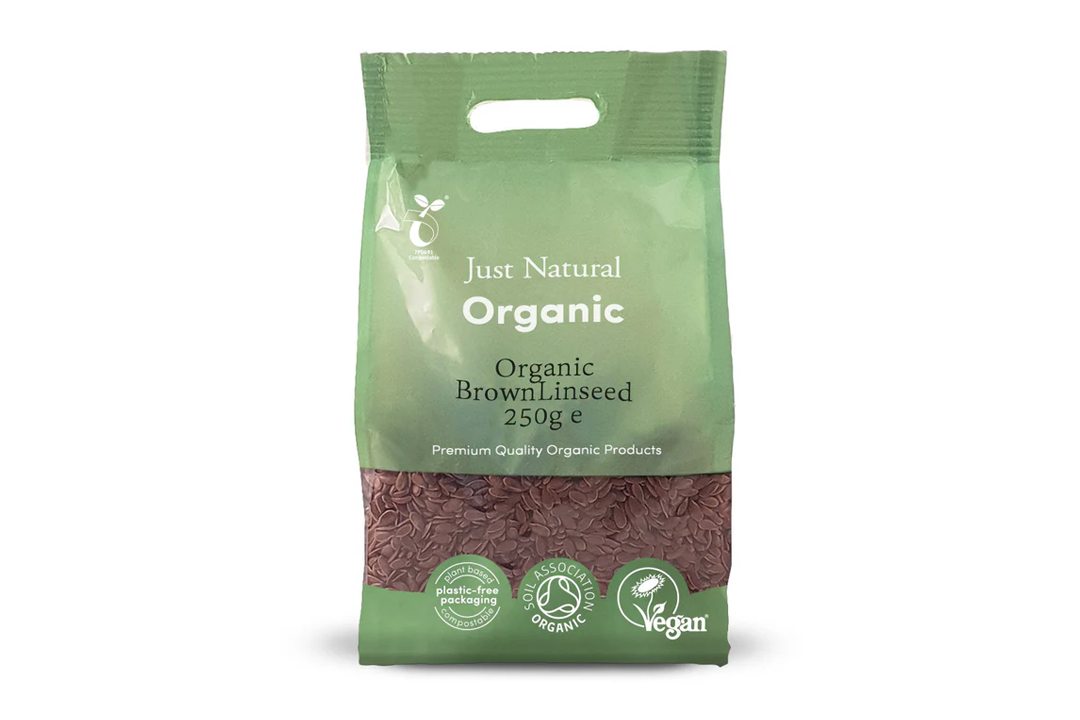
A source of protein that’s great for adding texture to your soups, salads and stir-fries, Hoath also recommends Just Natural’s organic brown linseed as an easy way to introduce flaxseed into your diet. Just Natural’s premium quality ingredients are carefully selected and high in natural dietary fibre.
Sainsbury’s brown linseeds: £1.20, Sainsburys.co.uk
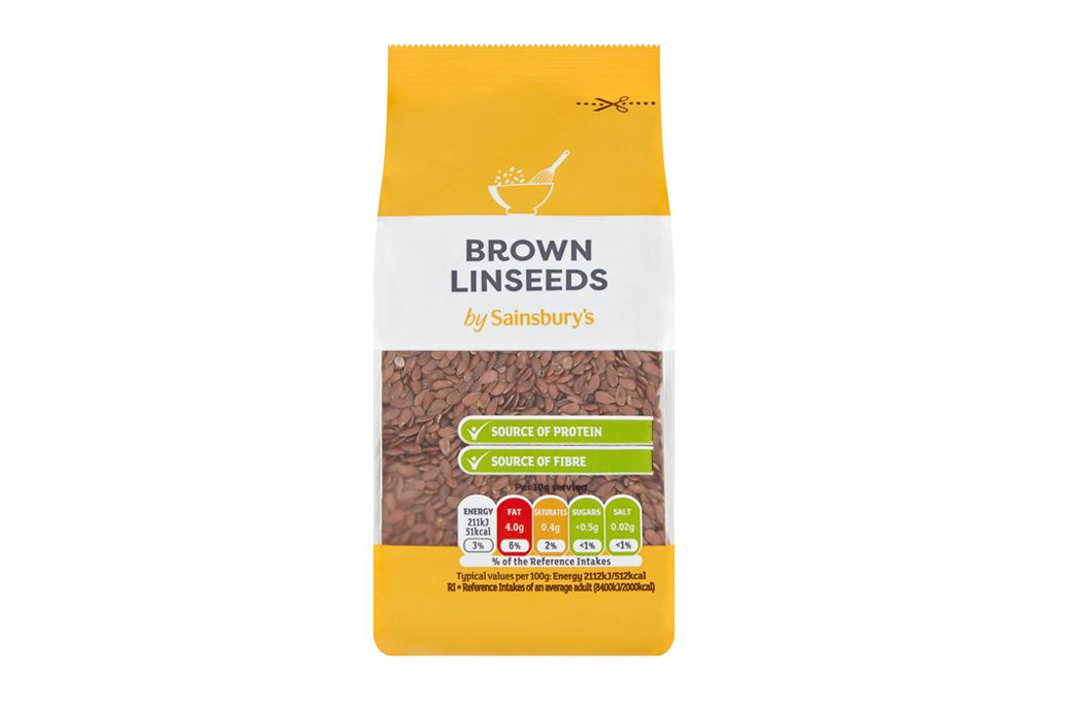
Another suggestion from English is Sainsbury’s brown linseeds, which offer a cheap and cheerful addition to your daily diet. “I recommend between one and two tablespoons of flaxseeds per day, ideally ground or milled to maximise their nutritional benefits, as whole flax seeds may pass through the digestive system undigested,” she told us.
Dillon Organic original flax keto bread, pack of 6: £26.99, Amazon.co.uk

Dillon’s flax keto bread is a low-carb loaf made from organic flax seeds and other nutritious ingredients, making it a healthier alternative to traditional bread. Hoath recommends the keto bread for breakfast, and it’s a great choice for those following a ketogenic diet.
Fushi wellbeing flaxseed oil: £8, Fushiwellbeing.com

“I tend to use Fushu’s flaxseed oil to drizzle on salads to support skin health and can also use topically on my hair and nails,” Hoath told us. The oil is rich in omega 3 (an essential fatty acid) and a source of insoluble fibre that feeds friendly bacteria to support the gut.
Is linseed the same as flaxseed?
Also known as linseed, flaxseed are small seeds that can be eaten whole, ground or pressed to make oil. Confusion around whether linseed and flaxseed are the same thing stems from differences between countries: in the UK, we alternate between linseed and flax, while in the United States and Canada, both are referred to as flax.
What is flaxseed?
Flaxseed is a plant-based food that provides healthful fat, antioxidants, and fibre. Providing many health benefits, flax was grown as a crop in ancient Egypt and China, while in Asia, it has had a role in Ayurvedic medicine.
As for now, flaxseed is available in myriad forms, from seeds, oils and powder to tablets, capsules, and flour. As Dr Mosley says, it’s best used as a dietary supplement to prevent constipation, diabetes, high cholesterol, heart disease, and several other conditions.
“I love how versatile flax seeds are. They are an easy way to make meals more nutritionally dense, in turn boosting both our overall health,” Emily says.
What is flaxseed good for?
Small but mighty, flaxseed provides protein, fibre and omega-3 fatty acids, Hoath tells us. This combination not only helps reduce cholesterol and blood pressure but also helps maintain a healthy weight and lower the risk of some cancers.
The two types of fibre that flaxseed contains help support gut health and prevent constipation. “Our gut microbiome needs a healthy balance of good bacteria, and the soluble fibre content of flax seeds acts as fuel for these microorganisms, giving them the energy they need to thrive. Additionally, the insoluble fibre that flax seeds contain can promote regular bowel movements and leave you feeling fuller for longer,” English explained.
How do I eat flaxseed?
The form in which you eat flax can alter the benefits. “For example, whole flaxseeds can be therapeutically useful for individuals who are suffering from constipation or sluggish motility,” Hoath said. Alternatively, she opts for ground flax (blitzed in a blender) when she’s working with women’s hormonal symptoms, such as PMS and irregularity. “Ground flax also means that the body can absorb the total omega and nutrient benefit but it’s important to store ground flax in the freezer to make sure they don’t oxidise and go rancid,” she adds.
Other ways of eating flax include adding a tablespoon of ground flaxseed to your hot or cold breakfast cereal, adding a teaspoon of ground flaxseed to mayonnaise or mustard when making a sandwich, mixing a tablespoon of ground flaxseed into yoghurt or baking ground flaxseed into cookies, muffins, bread and more.
Voucher codes
For discounts on supplements and other offers, try the links below:
Looking for dietary supplements? We’ve rounded up the best protein powders and the best magnesium supplements